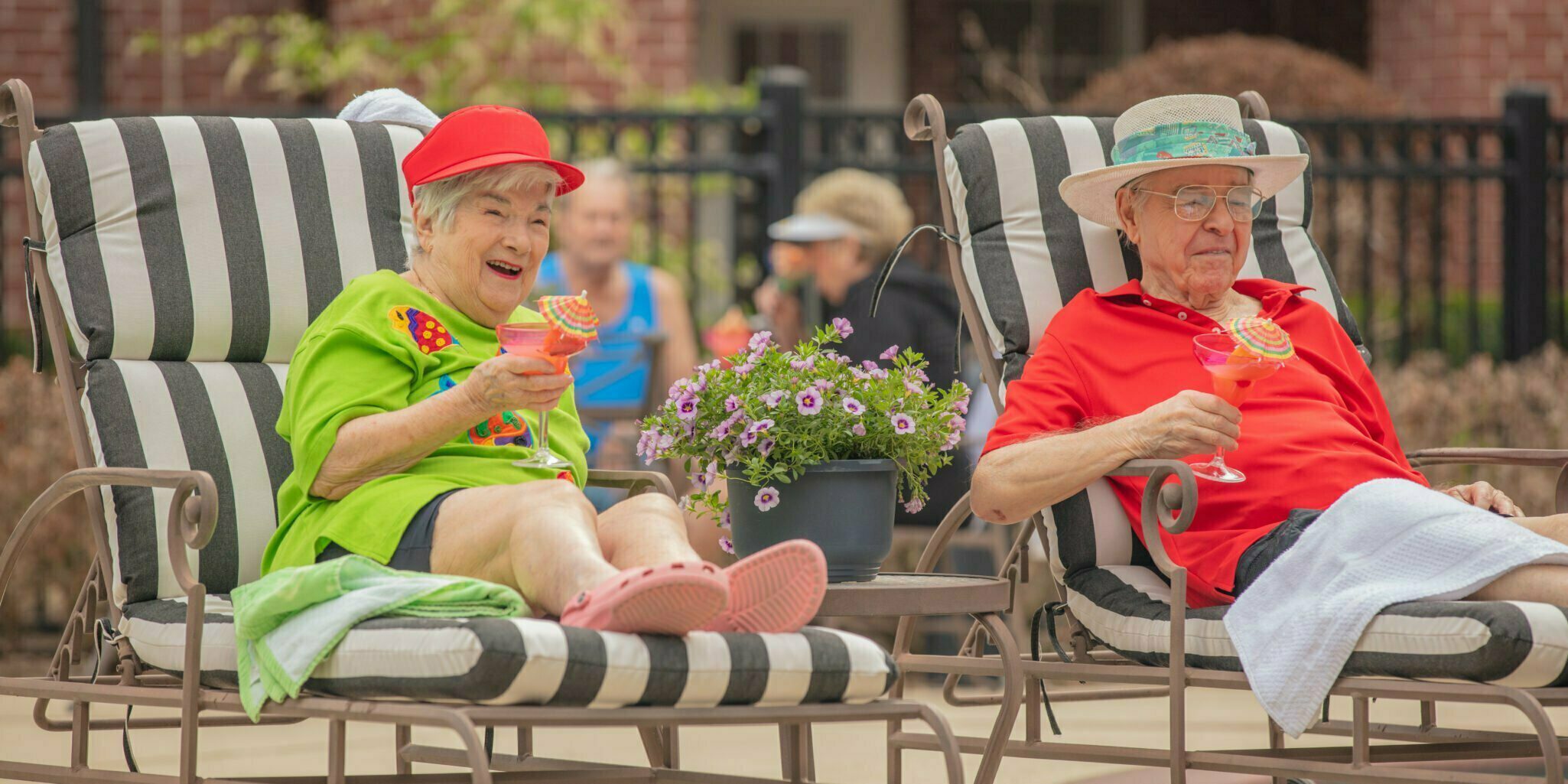
Assisted Living vs. Nursing Homes: Which is the Right Option for Your Loved One?
When it’s time for your parent to make a move and become part of a senior living community, you’ll inevitably ask the question, “What kind of community is the best fit for my parent?” With numerous factors like on-site medical personnel, cost, community amenities and many others, you’ll need all the information you can get to make this life-changing decision a well-informed
one.
The first thing you need to know about the difference between assisted living and nursing homes is that “nursing home” is an antiquated idea of senior care. While some communities offer only individual levels of care, many of today’s senior living communities offer a full continuum of care that includes independent living, assisted living, memory care, short-stay rehabilitation and skilled nursing. We’re here to guide you through the differences in the types of care offered by senior living communities, and how they differ from the nursing homes or assisted living communities of yesterday.

How Do I Determine My Parent’s Needs?
Seniors in both skilled nursing and assisted living communities have varying challenges requiring varying levels of support. These levels of assistance are determined by how functionally and independently the person can perform Activities of Daily Living (ADLs). “ADL” is a term used by health care professionals that encompasses various tasks an individual does on a daily basis.
A person’s ability or inability to perform each ADL is a common way in which health care professionals measure functional status and, accordingly, which senior care community best suits their needs.
ADLs include:
- Bathing
- Dressing
- Mobility
- Personal Hygiene and Grooming
- Toileting
- Self-Feeding
Medical professionals, therapists and caregivers use the Katz Index of Independence in Activities of Daily Living to evaluate levels of required care and independence.
As an adult child of a parent entering a senior living community, you’ll have a good idea of the kind of care your parent needs. However, consulting a medical professional or caregiver should always be your first step in deciding the right assisted living in Houston. ADLs will help you and your parent more clearly define the level of care needed in the next chapter of their life.

Who Will Care for My Parent?
On-site medical staff is one of the most important factors in choosing between assisted living and a nursing home , or what we today call skilled nursing care. Skilled nursing provides medical care to residents, whereas assisted living communities provide help with ADLs. A key benefit to skilled nursing communities is having nursing staff on-site around the clock. Many skilled nursing communities also require more advanced training for their staff and often have registered nurses and other advanced medical professionals on-site. Some skilled nursing communities also offer short-term stays for injury or illness rehabilitation, so you can expect skilled staff such as physical, occupational and speech therapists. While skilled nursing provides medical care, assisted living communities are more focused on lifestyle assistance.
How Will My Parent’s Lifestyle Change?
Whether you choose skilled nursing or assisted living , both communities should accommodate active and social lifestyles for residents.
Residents in skilled nursing care may share bedrooms similar to a hospital, but in larger senior living communities, private suites are often available. In a stand-alone skilled nursing community, activities are limited to what is offered on the property itself. Daily activities range from bingo to fitness classes to crafts to theatrical shows brought in, and are common in most skilled nursing programs.
Residents in assisted living communities usually have their own apartments or suites that are easy to maintain and feature small kitchens and private bathrooms. For many residents of assisted living, the biggest benefit is being a part of the community. Residents enjoy a wide variety of social activities within the community, actively taking up new hobbies and engaging in group activities almost every day. If they’re able, residents in assisted living communities can drive themselves to get groceries, attend doctor appointments, or anything else they might want to do away from the community. If they’re unable to drive, most assisted living communities provide transportation for their residents. Much of the attraction of assisted living communities is the feeling that residents are still living an independent lifestyle.
How Can I Pay for Senior Care?
Care in skilled nursing facilities (SNF as defined by Medicare) is covered by Medicare Part A given that the individual meets certain conditions, which can be found on Medicare.gov. Medicare typically covers 1-20 days in a skilled nursing facility with a qualifying hospital stay. However, for long-term care in a skilled nursing facility, coinsurance rates will be assessed depending on a number of various factors.
Cost of assisted living care varies widely based on the number of ADLs your parent may need help with, insurance policies and benefits. Medicare Part A and Medicare Part B generally don’t cover assisted living care for most seniors. Still, your parent may be eligible for reimbursement depending on their long-term care insurance policy.

What’s the Best Option for My Parent at The Buckingham?
If your parent is independent-minded, but needs help with things like meal preparation, transportation, housekeeping and getting ready for each day, assisted living is their best option. They’re allowed to maintain their sense of autonomy while enjoying all the social benefits of living in an assisted living community. Meals, chores and medication management are handled for them, so they can make the most of all assisted living has to offer. When choosing the right assisted living community in Houston , look no further than The Buckingham. Here, your parent can focus on what matters most to them with the comfort and security of our around-the-clock support staff.
If your parent requires specialized medical care from licensed nurses and therapists, unlike traditional nursing homes in Houston, The Buckingham offers excellent and enriched skilled nursing care. Whether your parent needs long-term skilled nursing care or short-term
rehabilitation due to hospitalization, illness or injury, our professionals are here for both your parent and you, offering superior care and invaluable peace of mind.

As a premier senior living community in Houston, The Buckingham proudly offers second-to-none programs designed to cater to your parent’s specific care needs. We offer a full continuum of care, including assisted living, memory support, skilled nursing and rehabilitation that will make your parent feel right at home. To see how seniors at The Buckingham enjoy each new day regardless of their level of living, visit our health services page.

